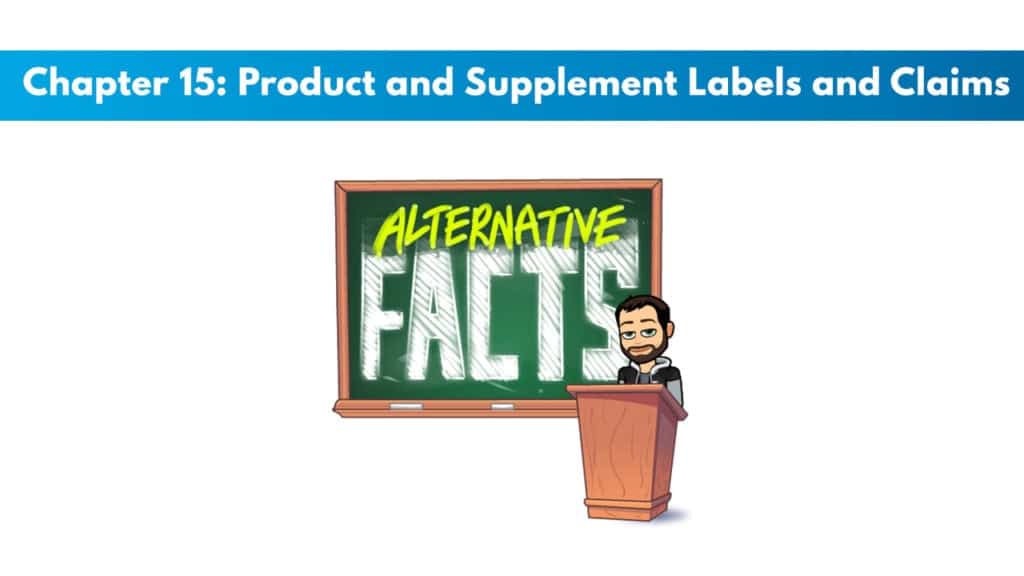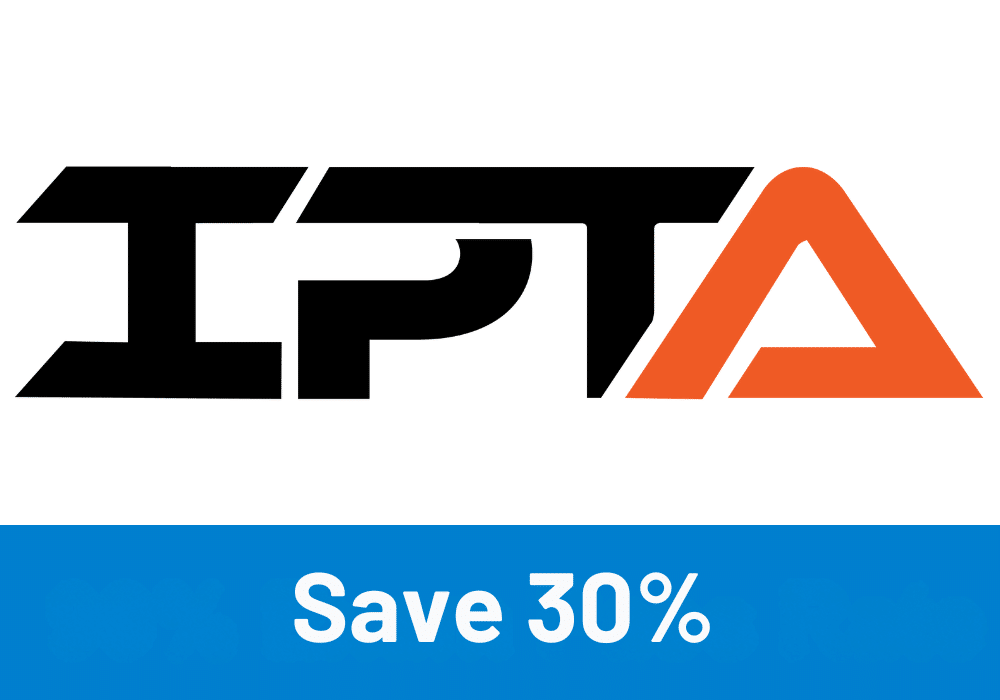
If you have not yet signed up for the ISSA Nutritionist certification, you can get it here for free as part of a special bundle.
Get your copy of the ISSA Nutritionist exam cheat sheet. It helps immensely for studying for the exam.
My PTP students report cutting their ISSA Nutritionist study time and effort in half with Trainer Academy.
Benefit from the Exam Pass Guarantee and Retake Fee Guarantee. Plus, take advantage of my current discount code PTPJULY for 50% off the MVP Program (Ends July 15th, 2025).
Try it out for free here to see if it’s right for you, or read my detailed review for further insights.
Chapter Goals:
- Know the terms relating to food and supplement labels and packages.
- Understand the key terms related to food and dietary supplement claims.
- List most of the claims made on food and supplement packages.
- Be able to discuss the types of foods and supplements and their claims regulated in the US.
- Know the organic agriculture of the united states.
Introduction
The term “wholesome” is a popular way to describe foods that should be fresh, healthy, and packed with nutrients.
Many marketing companies use different terms for loosely describing their products, making them seem healthier, but this is not always the case.
The ideal foods we consume would be that are unprocessed fruits, veggies, whole grains, and cereals.
All Foods Are Not Equal
The nutrient content for whole foods will vary quite a bit based on things like geographic location and even the time of year or the soil.
Inconsistencies have been one of the biggest flaws in nutrition approaches taken at the institutional level.
The Rise Of Dietary Supplements
The first use of nutrients for supplemental purposes likely started in some medical form. They have long been employed to get patients back to health.
These can be anything from tablets to intravenous solutions that deliver even quicker.
Dietary supplements are also called other names like supplements, food supplements, and nutrition supplements, and these have exploded in recent years in their use.
The FDA, or the Food and Drug Administration, regulates dietary supplement products and their ingredients to ensure they are labeled correctly and branded.
Exclusive PTP CPT Offers |
||
|---|---|---|
Most Popular Cert | Best Online NCCA Cert | Best Study Materials |
Gold Standard Cert | A Good Option | Best CPT for you?  |
But the companies making the products will ensure safety evaluations, labeling, and purity standards before marketing.
Oftentimes, we see people thinking of supplements more as drugs than food, and this is partly due to their packaging and common consumption and the origins of supplements as a whole.
Food Vs. Supplements
People who encourage the use of supplements as part of a balanced diet can provide powders and pills over the use of food.
Since people are often unable to perfectly digest all of the nutrients from things like fruits and whatnot, supplementation with a basic and more easily digestible form of them.
Critics of supplements often state the problems as being from the inconsistent regulation of extra ingredients and fillers; also, other things like the quality of the ingredients and inaccurate claims have led to some critiquing.
Food and Supplement Labeling
Most common household products have a list of their ingredients, and some may have calories and nutrients in each serving on the package.
Nutrition coaches should always start by learning about the various nutrients within each food, specifically those high in specific nutrients.
With the FDA nutrition labeling regulations, specific ingredients and nutrition information must be placed on the food packages.
Ingredient lists will show the ingredients in order of the amount in descending order.
Understanding Food and Supplement Labels
The FDA has a lot of regulations for every aspect of ingredients, packing, manufacturing, labeling, testing, and all the processes relating to both food and supplements under legal authority.
Requirements for Supplement Manufacturers
It is often assumed that dietary supplements have no regulation by the FDA, but in reality, there are many requirements set by the FDA and various other governing bodies.
Unless someone is excluded, the supplement manufacturers must maintain a license for food facilities with the FDA and are also subject to being audited without any notice.
Testing requirements are also set, including testing for purity, ingredient identity, and dosage claims.
Nutrition Facts Label
The nutrition facts label is designed to help consumers make informed choices regarding the food they purchase and consume.
Exclusive PTP CPT Offers |
||
|---|---|---|
Most Popular Cert | Best Online NCCA Cert | Best Study Materials |
Gold Standard Cert | A Good Option | Best CPT for you?  |
Nutrition labels should be easy to read and have been updated to make that job even easier than before. Certain nutrients are bolded to be more easily and quickly found on the label.
Added sugars are a main thing that is made sure to have the amount in grams and the percent daily value, due to their added importance in avoiding for the average American.
The serving sizes and labeling requirements are put in by law and must be based on the amount of food and beverage people eat in one sitting, not the recommendation.
Trans fats must be on the label and clear to read, as this should be reduced in the diet.
The addition of vitamin D and potassium is something that is often lacking in the intake for Americans. Many of the current chronic diseases in the US are caused or a part of the cause has to do with these vitamins and lacking them in the diet.
Vitamin A and Vitamin C have been removed from the nutrition labels due to the massive decline in the presence of deficiencies in these vitamins.
Supplement Facts Labels
These will be very similar to the nutrition facts labels when it comes to the provision of pertinent information about the product.
The FDA and The Federal Trade Commission
Outside of the way the FDA regulates packaging for food, there also are some regulations on the claims and statements that companies can make on their products and in their advertising.
Claims about miracle foods and health-enhancing ingredients for long term benefits may influence how consumers shop and buy foodstuff.
The FDA is mainly concerned with claims on product labeling, packing, inserts, and other promotional materials, and then the FTC is concerned with the claims made in advertisements and marketing.
Food and Supplement Claims
There are three categories of claims on both food and supplement labels: health claims, nutrient content claims, and structure or function claims.
The producer or manufacturer is responsible for understanding the regulations behind the claims they want to make on the products.
They must make clear, truthful, and never mislead with the claims.
Nutrient Content Claims
This is a claim on a food product that directly or indirectly characterizes the level of some nutrient in the food product.
Some of the claims for each nutrient can be that they are free, low, reduced, less, or some small variations of these for a nutrient.
Some other claims include High, Rich, good source of, more, fortified, extra, plus, lean, extra lean, high potency, modified, fiber claims, and claims with the word antioxidant.
Health Claims
These are going to be reviewed and then authorized by the FDA. These claims describe the relationship between a food substance and reducing the risk of a disease or other health condition.
Health claims differ from dietary guidelines since these guidelines do not link a substance and a health condition directly together.
An example of a health claim would be: 3 grams of soluble fiber from oatmeal daily in a diet low in saturated fat and cholesterol may reduce the risk for heart disease.
An example of dietary guidance is something like this: Consuming 3 or more ounces of whole grains per day may reduce the risk for several chronic diseases.
Structure and Function Claims
These have historically appeared on the labels of conventional foods, dietary supplements, and drugs.
We have many regulations for using structure and function claims and two related types of dietary supplement labeling claims. These are claims of well-being and claims related to a nutrient deficiency disease.
If dietary supplement labels do make an iffy claim, then they must state a disclaimer that the FDA has not evaluated the claim.
Organic Agriculture in the United States
Organic agriculture makes products using methods that preserve the environment and avoid most synthetic materials like pesticides and antibiotics.
The USDA organic standards describe how farmers grow crops and raise livestock and what materials they might use.
Organic farmers, ranchers, and food processors follow a defined set of standards for making organic foods and fibers.
There are separate claims to be made for organic claims and labels.

 Have a question?
Have a question? 



Tyler Read
PTPioneer Editorial Integrity
All content published on PTPioneer is checked and reviewed extensively by our staff of experienced personal trainers, nutrition coaches, and other Fitness Experts. This is to make sure that the content you are reading is fact-checked for accuracy, contains up-to-date information, and is relevant. We only add trustworthy citations that you can find at the bottom of each article. You can read more about our editorial integrity here.